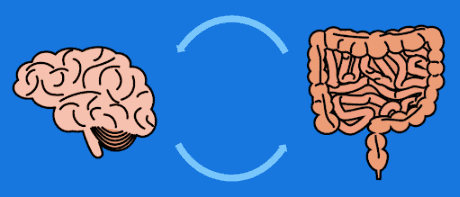The gut and the brain just went from sneaky links to officially dating

Image: UMass Chan Medical School
In a pair of new studies published this week in Nature Communications, scientists laid out evidence suggesting that certain types of bacteria in the human gut are correlated with depression. Said the gut to the brain: It’s like you’re my mirror (oh-oh), my mirror staring back at me.
🦠 Background: The human gut microbiome, aka the trillions of microorganisms living in the intestinal tract, is vital to overall health. Sometimes referred to as the ‘second brain,’ it’s home to the Enteric Nervous System – a network of millions of neurons wrapped in and around our gut that are in constant communication with the brain.
There are several familiar examples of this gut-brain connection, like how feelings of nervousness or excitement can cause “butterflies” in your stomach. But it’s not just a one-way road – the link works the other way, too.
Enter: this week’s studies… where researchers, after studying over 2,500 volunteers across Europe, identified 13 groups of gut bacteria related to depression symptoms. Some of these bacteria help synthesize certain chemicals, including serotonin, butyrate, glutamate, and gamma amino butyric acid (GABA), that affect the brain.
🍽🧠 The bottom line: “Ten years ago if you’d said there was something linking depression and the microbiome, you’d be carried out with a straitjacket... Now absolutely, it’s very clear there’s a link," said Jos Bosch, an associate professor of psychology at the University of Amsterdam who co-wrote both studies.
Share this!
You've made it this far...
Let's make our relationship official, no 💍 or elaborate proposal required. Just take the ten-second quiz below – then sit back, relax, and experience unbiased news that's actually enjoyable to read.
Learn and stay entertained, for free.👇
All of our news is 100% free and you can unsubscribe anytime; the quiz takes ~10 seconds to complete